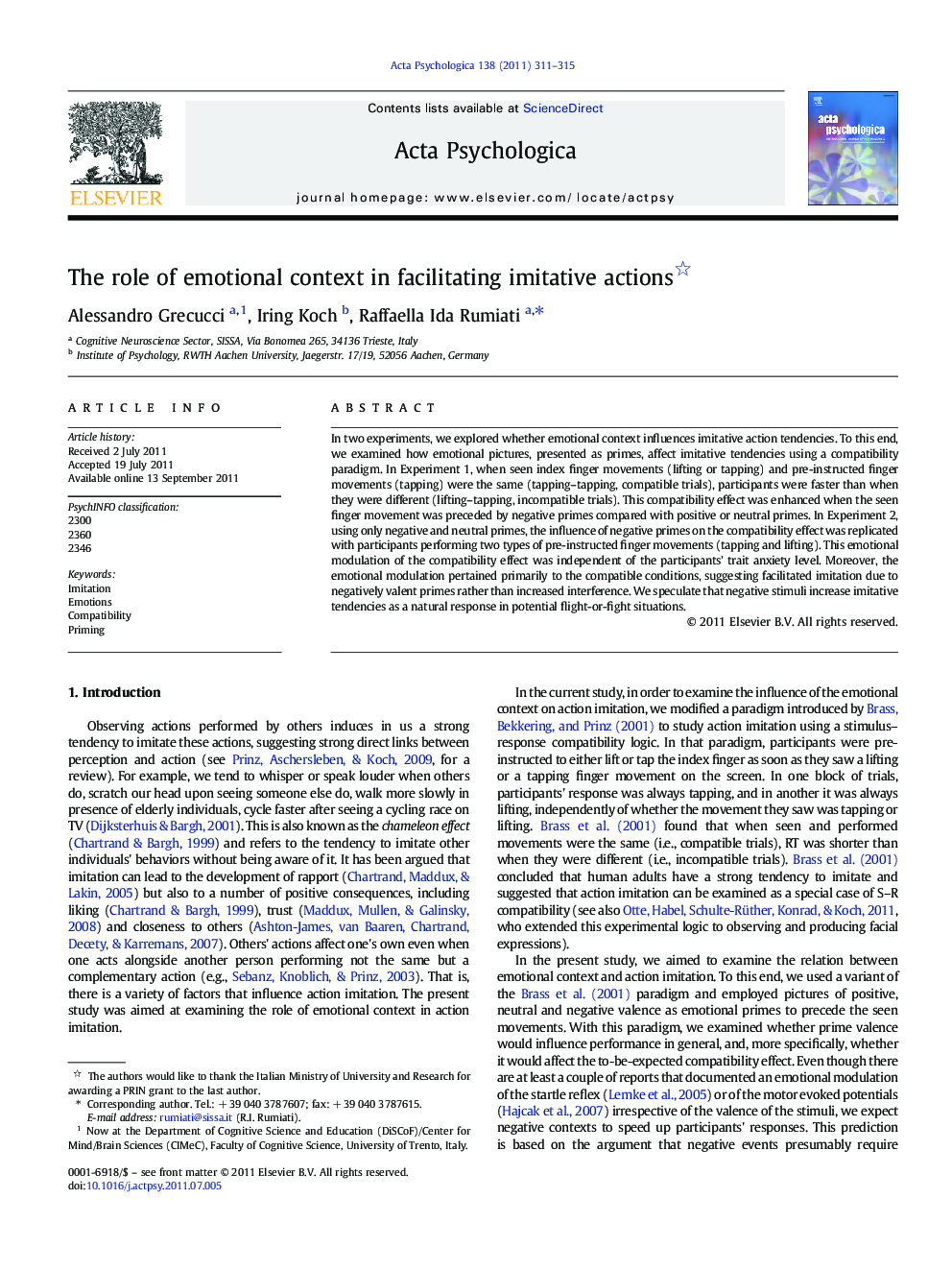| Article ID | Journal | Published Year | Pages | File Type |
|---|---|---|---|---|
| 919985 | Acta Psychologica | 2011 | 5 Pages |
In two experiments, we explored whether emotional context influences imitative action tendencies. To this end, we examined how emotional pictures, presented as primes, affect imitative tendencies using a compatibility paradigm. In Experiment 1, when seen index finger movements (lifting or tapping) and pre-instructed finger movements (tapping) were the same (tapping–tapping, compatible trials), participants were faster than when they were different (lifting–tapping, incompatible trials). This compatibility effect was enhanced when the seen finger movement was preceded by negative primes compared with positive or neutral primes. In Experiment 2, using only negative and neutral primes, the influence of negative primes on the compatibility effect was replicated with participants performing two types of pre-instructed finger movements (tapping and lifting). This emotional modulation of the compatibility effect was independent of the participants' trait anxiety level. Moreover, the emotional modulation pertained primarily to the compatible conditions, suggesting facilitated imitation due to negatively valent primes rather than increased interference. We speculate that negative stimuli increase imitative tendencies as a natural response in potential flight-or-fight situations.
► We demonstrate that negative emotional contexts enhance imitative action tendencies. ► This effect is interpreted as a natural response in flight-or-fight situations. ► This emotional effect on imitation is independent of subjects’ trait anxiety level.
